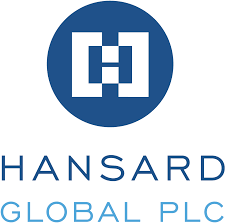If you have been proposed Hansard Universal Personal Portfolio Option Z1, or have a portfolio you aren’t happy with, you can contact me via email – advice@adamfayed.com – or WhatsApp (+44-7393-450-837).
Who is Hansard?
Hansard International is part of Hansard Group, which is listed on the UK stock market. Based in the Isle of Man, they have been in the market for decades.
Most of Hansard’s clients are expats, especially British people living overseas, who are investing for the purposes of wealth accumulation or retirement.
The Z1 product has a 50,000 Sterling minimum and aims to be more flexible than their previous product.

What are the positives associated with Hansard Universal Personal Portfolio Option Z1?
The main pluses for this option are:
- The fee structure is much better than most other Hansard products.
- They can accept for most countries around the world, and indeed for most nationalities, even if they can’t take Americans and people living in countries sanctioned by the US (such as Cuba).
- You can take (theoretically) out your money without penalty at any time – more on that later.
What are the drawbacks associated with this option?
The main drawbacks are:
- Many high-net-worth assets aren’t available. Most of the funds available are European Union-regulated funds (UCITS). This is a good, safe, structure. However, many wealthier clients want to put 10%-20% of their funds into alternative assets for diversification.
- The paperwork and hassles associated with this option aren’t the best. Hansard have improved their digital offering, but it is still far from ideal.
- There are plenty of good things associated with this product, including the tax advantages, however, they aren’t unique. Many other providers offer the same or similar benefits.
- If you end up happy, or unhappy, with your policy, will largely depend on the advisor. This is the case for all providers, however.
- It is more expensive than first expected, even if it is reasonably priced. It is normal for people to be charged over 1% per year “forever” by Hansard, especially if the unit funds are used, and they also give investors reduced allocations. In comparison, many other similar bonds, have a fixed-term charging structure. An example of this is to be charged 1.2%-1.9% for 5-8 years only. Whilst this might seem more expensive, it can actually be cheaper long-term, as the fees eventually disappear after a set number of years.
- It is slightly misleading to say that the product is free from charges if you want to redeem the investment. If you invest $100,000, and $97,000 shows up on day one which you can redeem for free at any time, that isn’t any different from having $100,000 invested and a $3,000 penalty for withdrawing.
FAQs
This section will answer some common FAQs which weren’t dealt with above.
- Is the 90% protection scheme from the Isle of Man government useful?
No. There are two main reasons for this. Firstly, there are terms and conditions associated with this guarantee. Second, and probably more importantly, there are alternative structures available in the international market.
For example, some offshore life companies and investment platforms have a segregated account system
In human terms, that means the policyholder’s money can’t be used to pay back the companies debts if there is bankruptcy, which negates the need for a government guarantee to begin with.
2. Is it tax-advantageous for returning British expats to buy such policies?
I am not a tax advisor, but many professional tax advisors have suggested that it is tax-efficient for returning British expats to own life assurance investment policies. The same is true for Australian and South African expats who return home.
3. Is the fact that Hansard is an insurance company a bad thing?
No. It is neither good nor bad. People over-confuse this issue. Your returns will not be affected by how the company is regulated. If you buy the same funds, with identical fees, on an insurance company platform versus a pure investment platform, it won’t make a difference, apart from potential tax benefits.
4. What are the fees like?
The fees are currently:
- 412 pounds per year as a service fee
- Between 12.50-25 Pounds dealing fees depending on which assets are being traded
- There can be upfront fees taken, and negated, by the advisor, in addition to ongoing advisory fees.
- Hansard typically takes 1% as a fee from each premium, as an allocation rate.
Conclusion
This isn’t a bad option and is superior to many of the other lump-sum products offered by Hansard Global.
However, better options do exist, depending on what you want to achieve. It can be possible to gain the same benefits, with added extras, such as access to high-net-worth investments, with alternative providers.
What is more, is that it is misleading to suggest this option is free from any charges in the event of early surrender.
The way the fees are applied is merely different from more typical options selected in the expat market.
Pained by financial indecision?

Adam is an internationally recognised author on financial matters, with over 329.8 million answers views on Quora.com and a widely sold book on Amazon



